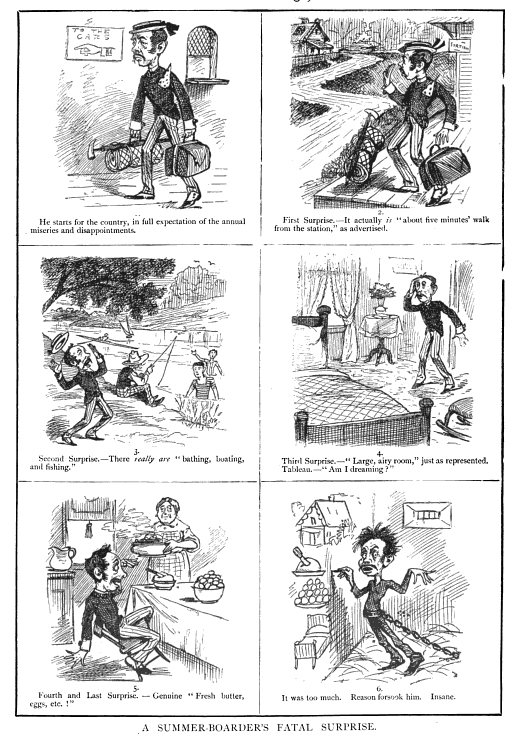Neurotic landladies, ill-sorted fellows, uncomfortable beds -- these characteristic annoyances of boarding house life pale in comparison to most boarders' "chief objection," writes Thomas Butler Gunn in his 1857 book Physiology of New York Boarding-Houses, which applies "all most universally to the cuisine."
American journalist Mortimer Thomson, writing in his 1855 book Doestick's Letters: And What He Says, echoes his contemporary Dunn in this vivid anecdote:
Another search and another home. Here for a week things went on tolerably well; the steak was sometimes capable of mastication, the coffee wasn't always weak, nor the butter always strong; but one day there appeared at breakfast a dish of beef, (Bull Dogge asserts that it was the fossil remains of an omnibus horse) -- it was not molested; at dinner it made its appearance again, still it was not disturbed; at tea fragments of it were visible, but it yet remained untouched; in the morning a tempting looking stew made its appearance, but, alas! it was only a weak invention of the enemy to conceal the ubiquitous beef; at dinner a meat-pie enshrined a portion of the aforesaid beef; it went away unharmed.
For a week, every day, at every meal, in every subtle form, in some ingenious disguise, still was forced upon our notice this omnipresent beef; it went through more changes than Harlequin in the Pantomime, and like that nimble individual came always out uninjured ...
Our next landlady had a gigantic mouth, but her nose was a magnificent failure. We stayed with her a week, and left because she seemed to be possessed of the idea that one sausage was enough for two men. For a month longer we ran the gauntlet of all the model boarding houses. We were entrapped by all kinds of alluring promises, and perpetually swindled without any regard to decency ... At last one day in an agony of despair I exclaimed, "Where O where can humbugged humanity find a decent place to feed? Echo answered, "In the eating-houses." We resolved to try it, and the result is glorious. We have achieved a victory, sir, an heroic, unexpected victory.
Declared "the sinking industry of Manhattan" by the New York Times in 1878, boarding houses had entered a decline that drew "few tears" from onlookers, "even from those whose lachrymose glands are most easily and needlessly disturbed." Many among the unmoved nonetheless found themselves forced to move. Those with means to do so lit out for the suburbs. Those whose finances kept them in the city entered apartments and lodging house, which, for better or worse, bore all the hallmarks of boarding houses save that of bad food.
